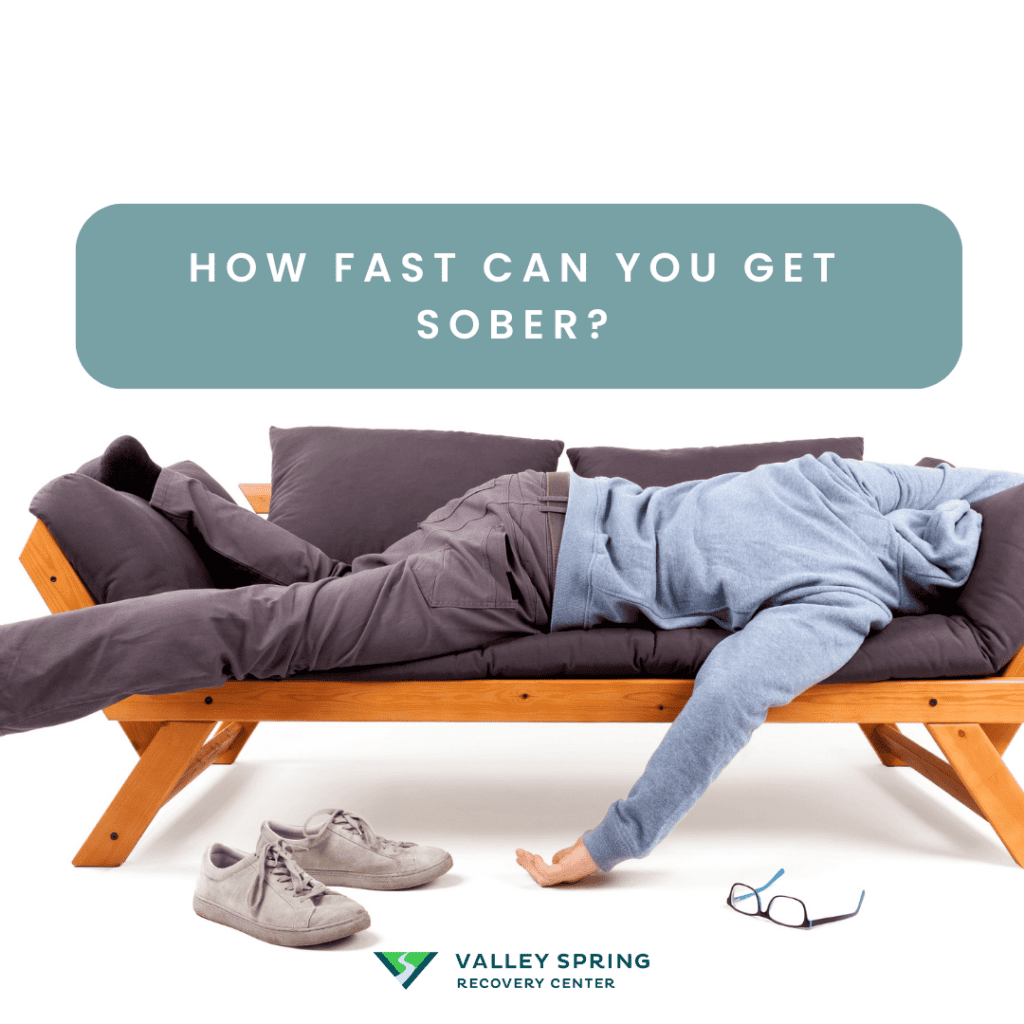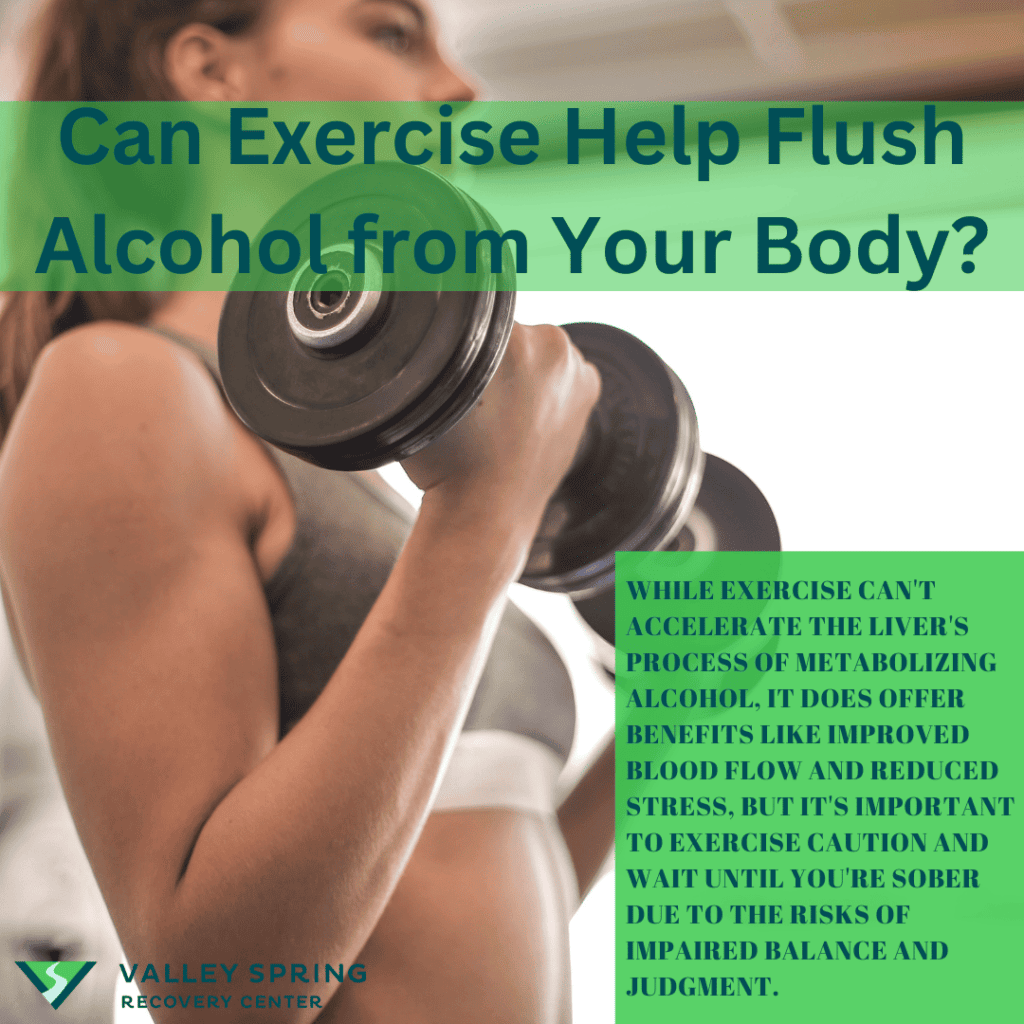Have you ever wished there was a magic potion or a secret trick to help you sober up quickly after a night of indulging in a few too many drinks? Unfortunately, the truth is that there’s no fast track to sobriety. The good news, however, is that understanding “how to sober up fast” and following responsible drinking habits can help you better manage your alcohol intake and avoid the unpleasant consequences of overindulging. In this blog post, we’ll debunk common myths, explore factors that influence alcohol metabolism, and share valuable tips for responsible drinking.
Alcohol metabolism can only be reduced over time, not sped up.
Responsible drinking involves counting drinks, alternating between alcoholic and non-alcoholic beverages, and setting personal limits.
Rehydrate with water or sports drinks, refuel with nutritious food, and get plenty of rest to recover from the effects of alcohol consumption.
What is a hangover?
A hangover is a collection of unpleasant physical and mental symptoms that occur after drinking too much alcohol. The severity and range of these symptoms can vary widely from person to person and depend on the amount and type of alcohol consumed.
The reasons why hangovers occur are multifaceted and involve several physiological processes:
- Dehydration and Electrolyte Imbalance: Alcohol is a diuretic, which means it increases urine production and leads to the loss of fluids and electrolytes from the body. This dehydration can cause symptoms like thirst, dizziness, and lightheadedness (Mayo Clinic Staff, 2020).
- Sleep Disruption: Although alcohol can make people feel sleepy, it disrupts the sleep cycle, particularly by reducing the amount of rapid eye movement (REM) sleep. This results in poorer sleep quality and can contribute to fatigue and grogginess (Ebrahim et al., 2013, Alcohol and Sleep I).
- Gastrointestinal Disturbances: Alcohol irritates the stomach lining and increases acid production, which can lead to nausea, vomiting, and stomach pain (Swift & Davidson, 1998, Alcohol Hangover).
- Acetaldehyde Buildup: When the body metabolizes alcohol, it first converts it to acetaldehyde, a toxic compound. If acetaldehyde accumulates faster than it can be broken down, it can lead to symptoms like nausea and vomiting (Swift & Davidson, 1998, Alcohol Hangover).
- Immune System Response: Alcohol consumption can trigger an inflammatory response in the body, affecting appetite, concentration, and memory, and contributing to the overall feeling of being unwell (Kim et al., 2003, Hangovers and Low to Moderate Alcohol Consumption).
- Blood Sugar Levels: Alcohol can cause blood sugar levels to fall, leading to symptoms like fatigue, weakness, and mood disturbances (Penning et al., 2010, The Pathology of Alcohol Hangover).
- Congeners: These byproducts of alcohol fermentation are found in various alcoholic beverages, especially darker liquors. Congeners can exacerbate hangover symptoms (Rohsenow & Howland, 2010, Hangover Symptoms and Congeners).
- Psychological Factors: Mood disturbances such as anxiety and depression can be part of a hangover, influenced by both the physiological effects of alcohol and individual psychological responses (Stephens et al., 2008, Cognitive and Emotional Consequences of Binge Drinking).
In summary, a hangover is a complex interplay of various physiological changes and responses to alcohol consumption. The specific symptoms and their severity can vary significantly among individuals.
How Fast Can You Sober Up From A Hangover?
Contrary to popular belief, there’s no magical way to sober up in a hurry. The only solution to decreasing your blood alcohol concentration (BAC) is time, as your body needs to metabolize the alcohol you’ve consumed. But don’t be disheartened! Understanding the factors that contribute to alcohol intoxication, and debunking common myths about speeding up the process, aids in making informed decisions about your alcohol intake and avoiding the unpleasant aftermath of overindulging.
While some might claim that drinking coffee, taking a cold shower, or even vomiting can help you sober up quickly, the reality is that these actions don’t significantly reduce your BAC. Instead, your body should be given the necessary time to process and eliminate alcohol from your system. This section explores various methods often touted as ways to sober up fast, analyzing their effectiveness (or lack thereof).

What Are The Best Tips For Getting Sober Fast and Curing A Hangover?
The steps to sober up from alcohol and mitigate hangover symptoms as stated by Dr Andrew Huberman are listed below:
1. Stay Hydrated
Drinking water is essential for maintaining hydration, which can help the liver metabolize alcohol more effectively. It’s a good idea to have a glass of water with each alcoholic drink you consume, as this can help prevent dehydration and reduce the effects of alcohol.
However, while staying hydrated is crucial for overall health and well-being, it’s important to understand that drinking water doesn’t speed up alcohol metabolism in your body. In other words, while drinking plenty of water may help you feel more alert and reduce the dehydrating effect of alcohol, it won’t magically flush the alcohol out of your system or make you sober up quickly.
Alcohol is a diuretic and leads to dehydration, a key contributor to hangover symptoms. Drinking water or electrolyte-replenishing beverages can help restore hydration and balance electrolytes.
So, even though staying hydrated when consuming alcohol is crucial, bear in mind that allowing time for your body to metabolize alcohol is the only true solution to sobering up.
2. Nutritious Foods
Eating before and during drinking can help slow down the absorption of alcohol into your bloodstream, resulting in a lower peak BAC. Consuming alcohol on an empty stomach can cause your body to absorb alcohol more rapidly, which affects how the body processes alcohol. However, even though eating can slow down alcohol absorption, it won’t lower your BAC once the alcohol has already been absorbed.
In fact, eating a meal high in carbohydrates or fat before and during drinking can help slow down alcohol absorption, regardless of the type of alcoholic drink consumed. But remember, while eating can help mitigate the effects of alcohol and reduce the risk of drunk driving, it doesn’t reverse the impact of the alcohol already in your system.
Huberman discusses the importance of stabilizing blood sugar levels disrupted by alcohol. Consuming balanced meals rich in vitamins, minerals, and antioxidants can aid in recovery. This approach aligns with the body’s need to replenish nutrients depleted by alcohol consumption (Huberman, 2021).
So, enjoy a delicious meal and some snacks while you drink, but keep in mind that time is still the only way to truly sober up.
3. Limit Alcohol Intake
Limiting alcohol intake and being aware of the ways that alcohol can disrupt your system is vital to curing a hangover before it starts. Drinking less quantity, watching out for sugary drinks and spacing drinks out are all strategies that will limit the severity of hangover symptoms before they start.
4. Sleep and Rest
Alcohol has a disruptive impact of alcohol on sleep patterns which makes additional rest and sleep a crucial step that helps cure hangover symptoms. can aid in recovery by allowing the body to restore its normal sleep cycle, which is crucial for overcoming fatigue and grogginess associated with hangovers (Huberman, 2021).
5. Ginger or Peppermint Tea
To address gastrointestinal disturbances caused by alcohol, natural remedies like ginger or peppermint tea can be effective. Alcohol irritates stomach lining and ginger or peppermint tea help by adding positive enzymes to the stomach according to Hubermans Podcast in 2021.
6. B Vitamins and Magnesium
Alcohol depletes essential nutrients like B vitamins and magnesium which make hangovers worse. Supplementing with B vitamins and Magnesium can help return these levels back to normal, alleviate hangover symptoms and support overall recovery (Huberman, 2021).
7. Avoid More Alcohol
The “hair of the dog” myth has been debunked, drinking more alcohol does not help with the recovery process, to the contrary, it prolongs it. Abstaining from further alcohol intake is crucial for the body to recover (Huberman, 2021).
It goes without saying that the best way to cure a hangover is to not overindulge in alcohol in the first place by:
Limiting your alcohol intake
Pacing your drinks
Consuming alcoholic beverages in moderation
Spacing out the intervals between drinks
These practices can help give your body the time it needs to metabolize the alcohol and maintain a lower BAC.
By moderating your rate of consumption and pacing your drinks, you grant your body more time to metabolize the alcohol, preventing too much alcohol intake. Remember, the best way to avoid intoxication and the need to sober up quickly is to limit your alcohol intake in the first place, rather than trying to drink alcohol faster, and drinking more in hopes of alleviating a hangover will not work.
8. Light Exercise
While not directly mentioned in the podcast, light exercise like walking can enhance mood and energy levels during recovery. However, it’s important to stay hydrated and avoid strenuous activities until fully recovered.
9. Time
Time is the only definitive way to sober up from a hangover after a night of heavy drinking. The liver metabolizes alcohol at a steady rate, and only time can effectively reduce blood alcohol content to zero (Huberman, 2021).
What are some widely believed hangover remedies that are ineffective or potentially harmful, and what are the scientifically supported alternatives?
Myth: Drinking More Alcohol (“Hair of the Dog”)
Reality: Contrary to popular belief, consuming more alcohol to cure a hangover only delays the onset of symptoms and can exacerbate dehydration.
Alternative: Opt for hydrating fluids like water or electrolyte drinks to replenish lost fluids and minerals.
Myth: Eating Greasy or Heavy Foods
Reality: While the idea of eating greasy food might be appealing, it can further irritate an already sensitive stomach lining.
Alternative: Choose easy-to-digest foods like toast, crackers, or bananas, which can provide energy and help stabilize blood sugar levels without causing additional gastrointestinal distress.
Myth: Drinking Strong Coffee or Caffeinated Beverages
Reality: Caffeine might temporarily make you feel more alert, but it can also contribute to dehydration, potentially worsening hangover symptoms.
Alternative: Drink herbal teas or water. If you need caffeine, consume it in moderation and balance it with plenty of water.
Myth: Sweating It Out with Intense Exercise
Reality: High-intensity exercise can be taxing on your body when it’s already dehydrated and low on energy, leading to increased fatigue and dehydration.
Alternative: Engage in gentle activities like walking or stretching, which can boost your mood and energy levels without overstraining your body.
Myth: Over-the-Counter Painkillers Before Bed
Reality: Taking certain painkillers like acetaminophen before sleeping can put extra strain on your liver, especially when it’s already processing alcohol.
Alternative: If you need a pain reliever, opt for non-acetaminophen-based ones and take them after you’ve had some water and food.
Understanding these myths and their realities can help in choosing more effective and safer methods to alleviate hangover symptoms. Remember, the best cure for a hangover is time, hydration, rest, and nutrient replenishment.
What Factors Influence Alcohol Metabolism?
The faster the human body metabolizes alcohol is directly correlated with the length of hangover symptoms. If a drinker has a fast metabolism, the alcohol will be gone from their system faster and the length of the hangover will be shorter. Alcohol metabolism can be affected by factors such as biological sex, body weight, and the combination of alcohol with other substances. This section will examine each of these factors and discuss their influence on the speed of alcohol metabolism in your body.
Understanding how these factors play a role in alcohol metabolism can help you make informed decisions about your alcohol consumption and better manage your BAC, reducing the risk of overindulging and the need to sober up quickly.
1. Biological Sex
It’s no secret that men and women metabolize alcohol differently. Generally, men metabolize alcohol more quickly than women due to the presence of the alcohol dehydrogenase (ADH) enzyme. This enzyme, found in the liver, facilitates the breakdown of alcohol, and men typically have higher levels of ADH than women.
As a result, men can often consume more alcohol than women without experiencing the same level of intoxication, due to their faster alcohol metabolism. However, it’s important to remember that individual differences in alcohol metabolism can still vary significantly, and responsible drinking should always be the priority, regardless of biological sex.
2. Body Weight
Body weight also plays a role in alcohol metabolism. Heavier individuals tend to have lower BAC levels than lighter individuals who consume the same amount of alcohol. This is due to the fact that alcohol is distributed more evenly throughout a larger body, leading to a lower concentration of alcohol in the bloodstream.
However, it’s important to understand that having a higher body weight does not mean you can consume more alcohol without becoming inebriated. Body weight is just one factor affecting alcohol metabolism, and responsible drinking habits are essential for everyone, regardless of their size.
3. Mixing Alcohol with Other Substances
Mixing alcohol with other substances can have a significant impact on alcohol metabolism. Certain substances, such as caffeine, can slow down the rate of alcohol metabolism, while others, such as nicotine, can accelerate it. When alcohol is combined with other substances, the interactions can lead to dangerous side effects, including alcohol poisoning, and potentially slow down the body’s ability to metabolize alcohol.
It’s crucial to be aware of the risks associated with mixing alcohol and other substances and to avoid such combinations whenever possible. Responsible drinking means not only monitoring your alcohol intake but also being mindful of the substances you’re consuming alongside it.
What are the symptoms of a hangover?
A hangover refers to the unpleasant symptoms experienced after excessive alcohol consumption or binge drinking. These symptoms typically begin when the blood alcohol concentration starts to fall and can vary in intensity based on several factors, including the amount of alcohol consumed, individual tolerance, and overall health. Common symptoms of a hangover include:
- Headache: Often a result of dehydration and the dilation of blood vessels.
- Fatigue and Weakness: Due to poor sleep quality and the sedative effect of alcohol.
- Nausea, Vomiting, or Stomach Pain: Caused by irritation of the stomach lining and increased acid production due to alcohol.
- Sensitivity to Light and Sound: Alcohol can cause an increase in sensitivity to both light and sound.
- Dizziness or a Sense of the Room Spinning: Related to effects on the inner ear and blood sugar levels.
- Decreased Ability to Concentrate: Alcohol can affect cognitive functions and concentration levels.
- Mood Disturbances: Including depression, anxiety, and irritability.
- Rapid Heartbeat: Alcohol can cause an increase in heart rate and palpitations.
- Dry Mouth and Thirst: Indications of dehydration caused by alcohol’s diuretic effect.
- Tremors: Mild shaking can occur as a result of alcohol withdrawal.
- Bloodshot Eyes: Alcohol causes blood vessels in the eyes to expand.
- Increased Sensitivity to Physical and Emotional Pain: Alcohol can heighten perceptions of pain.
- Gastrointestinal Distress: Including indigestion, heartburn, and acid reflux.
- Sweating: As the body attempts to process and eliminate the alcohol.
- Increased Anxiety or Depression: As the effects of alcohol wear off, mood can be negatively impacted.
These symptoms can last for several hours or even more than a day, depending on the amount of alcohol consumed and individual factors such as genetics, age, and overall health.
What Is The Best Way To Cure a Hangover After Drinking Too

Can Exercise Help Flush Alcohol from Your Body?
The notion of “sweating out” alcohol to expedite its removal from your system is a widespread but incorrect belief. In reality, it’s the liver that metabolizes alcohol, doing so at a consistent rate—approximately one standard drink per hour. Physical exercise doesn’t accelerate this liver function.
Nevertheless, exercise does offer certain advantages for individuals who have consumed alcohol. Engaging in physical activities enhances blood circulation and oxygenation, which can improve alertness while mitigating stress, anxiety, and the symptoms of a hangover.
It’s crucial to recognize the potential hazards of exercising while intoxicated, as alcohol impairs balance, coordination, and judgment. To minimize these risks, it’s advisable to wait until you’re sober before engaging in any physical activity.
What Are The Tips for Responsible Drinking?
Here are some tips for responsible alcohol consumption:
Count your drinks to keep track of how much you’re consuming.
Alternate between alcoholic and non-alcoholic beverages to pace yourself.
Set personal drinking limits and stick to them. By following these tips, you can maintain control over your alcohol consumption and avoid the need to sober up quickly.
This section will delve into specific strategies for responsible drinking, ensuring enjoyment of your favorite beverages without overindulgence or putting yourself at risk.
1. Count Your Drinks
One of the most effective ways to maintain awareness of your alcohol intake is by counting your drinks. By keeping track of the number of drinks you’ve consumed, you can monitor your alcohol intake and ensure that you don’t exceed safe limits.
There are several methods to count your drinks and monitor your alcohol consumption. You can keep a notepad and pen nearby to record each drink or use a mobile app to log and track your drinks. Whichever method you choose, counting your drinks can help you maintain control over your alcohol consumption and avoid the consequences of overindulging.
2. Alternate Alcoholic and Non-Alcoholic Beverages
Alternating between alcoholic and non-alcoholic drinks is another effective strategy for responsible drinking. This practice can help slow down your alcohol consumption, prevent dehydration, and give your liver time to metabolize the alcohol.
By incorporating non-alcoholic beverages into your drinking routine, you can enjoy the social aspects of drinking while also keeping track of your alcohol consumption and maintaining a lower BAC. Plus, with a wide variety of non-alcoholic beverages available, you can still enjoy delicious and refreshing drinks without the added alcohol.
3. Set Drinking Limits
Establishing personal drinking limits is another essential aspect of responsible drinking. By setting a limit on the number of drinks you’ll consume, you can prevent overconsumption and maintain a safe BAC.
There are several strategies for setting and maintaining personal drinking limits, such as:
Deciding on a specific number of drinks to consume in a given time frame
Sticking to a predetermined drinking pace
Identifying alternative activities to engage in instead of drinking
By setting and adhering to personal drinking limits, you can enjoy your favorite beverages responsibly and avoid the need to sober up quickly when you drink alcohol. Knowing how much alcohol you can handle is essential for responsible consumption.
A more comprehensive answer list of responsible drinking tips is listed below:
| Tip for Responsible Drinking | Description |
|---|---|
| Know Your Limits | Understand and adhere to the recommended limits of alcohol intake (up to 2 drinks per day for men and 1 drink per day for women). |
| Eat Before and While Drinking | Consuming food can slow the absorption of alcohol into the bloodstream. |
| Pace Your Drinking | Aim to have no more than one standard drink per hour and alternate alcoholic drinks with water or non-alcoholic beverages. |
| Choose Lower Alcohol Options | Opt for drinks with lower alcohol content to reduce overall alcohol intake. |
| Avoid Drinking for ‘Effect’ | Refrain from consuming alcohol with the sole purpose of getting drunk. |
| Plan Ahead | If you plan to drink, ensure you have a safe way to get home, such as a designated driver or a taxi service. |
| Skip Alcohol on Some Days | Have several alcohol-free days each week to avoid developing a habit or dependency. |
| Be Aware of Triggers | Recognize situations or emotions that prompt you to drink more and develop strategies to handle them. |
| Don’t Mix Alcohol and Medications | Be aware of the potential dangerous interactions between alcohol and certain medications. |
| Respect the Right Not to Drink | Be respectful of others’ decisions not to drink and don’t pressure anyone to consume alcohol. |
What food soaks up alcohol?
High-protein, fatty foods like yogurt and salmon can help to slow the absorption of alcohol in the body.
What is sobering up?
Sobering up involves allowing your body time to process alcohol and can be aided by tactics such as drinking coffee, exercising, and sleeping. It is the process of becoming less drunk or making someone less drunk. Long-term sobriety is the state of being sober and continuing to work on recovery and abstinence.
Can drinking coffee help me sober up quickly?
No, drinking coffee will not help you sober up quickly. Caffeine may make you feel more alert, but it does not speed up alcohol metabolism.
Can vomiting reduce my blood alcohol level?
Vomiting does not reduce your blood alcohol level, as it is quickly absorbed into the bloodstream.
How can I drink responsibly and avoid the need to sober up quickly?
Set personal drinking limits, count your drinks, alternate between alcoholic and non-alcoholic beverages, and be aware of factors that influence alcohol metabolism to responsibly avoid the need to sober up quickly.
If You’re Having Trouble Quitting Drinking Should You Participate In Sober October?
Participating in sober October is a good way to see if you have a drinking problem. October is a month long and people who don’t have a problem with drugs or alcohol are usually able to abstain from drinking or using drugs for 30 days without a problem. If sober October is really hard for you and you can’t do it at all, then that might be a sign you need help.
Does binge drinking make for a worse hangover?
Yes, binge drinking typically results in a worse hangover. The severity of a hangover is generally influenced by the amount of alcohol consumed and the rate at which it is consumed. Here’s why binge drinking can lead to more severe hangovers:
- Higher Alcohol Intake: Binge drinking involves consuming a large amount of alcohol in a short period. This high intake overwhelms the body’s ability to metabolize alcohol efficiently, leading to a higher concentration of alcohol in the bloodstream.
- Dehydration: Alcohol is a diuretic, and consuming large quantities can lead to significant dehydration. Dehydration is a key factor in many common hangover symptoms, such as headache, dizziness, and dry mouth.
- Toxic Byproducts: The body metabolizes alcohol into acetaldehyde, a toxic compound that contributes to hangover symptoms. The more alcohol you consume, the more acetaldehyde builds up, increasing the severity of the hangover.
- Disruption of Sleep: While alcohol might initially induce sleepiness, it ultimately disrupts sleep patterns. Binge drinking can lead to poor quality sleep, contributing to fatigue and grogginess associated with hangovers.
- Gastrointestinal Distress: High alcohol consumption irritates the gastrointestinal tract, which can lead to nausea, vomiting, and stomach pain, all common symptoms of a hangover.
- Nutritional Depletion: Alcohol inhibits the absorption of nutrients and depletes the body of essential vitamins and minerals. This depletion can exacerbate hangover symptoms.
- Immune System Response: Binge drinking can trigger an inflammatory response from the immune system, which may contribute to symptoms like lack of concentration, memory problems, decreased appetite, and loss of interest in usual activities.
It’s important to note that individual tolerance to alcohol varies, and some people may experience severe hangovers with relatively lower amounts of alcohol consumption. To minimize the risk of a hangover, it is advisable to drink alcohol in moderation, stay hydrated, eat before drinking, and give the body time to metabolize alcohol.
What should you do if you want to just quit drinking?
If you want to quit drinking, start by setting a clear goal and a quit date. Seek support from friends, family, or support groups like AA. Consider consulting a healthcare professional for guidance and possible treatment options. Gradually reduce alcohol intake if necessary, and replace drinking habits with healthier activities. Stay committed and be prepared for challenges.
Valley Spring Editorial Team
All author postsShare This Post





